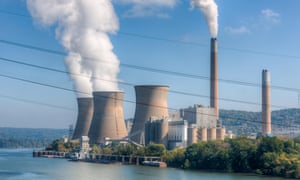1. Importance of Property Rights in a Market System:
Property rights refer to the legal ownership and control that individuals or entities have over assets, resources, and goods. In a market system, property rights play a fundamental role in facilitating efficient resource allocation and promoting economic growth. Here's why property rights are essential to the functioning of a market system:
Incentive to Invest and Innovate: Secure property rights provide individuals and businesses with the assurance that they can enjoy the fruits of their investments and innovations. When people know they will reap the benefits of their efforts, they are incentivized to invest, take risks, and innovate, leading to increased productivity and economic growth.
Clear Ownership and Transferability: Property rights allow for clear ownership and transferability of assets. This enables individuals to buy, sell, or trade property, goods, and resources in the marketplace, promoting efficient allocation based on supply and demand.
Resource Allocation: Property rights facilitate the efficient allocation of resources by providing a framework for individuals to decide how to use and manage their property. Resources flow to their most valued uses as people make decisions based on their preferences and economic incentives.
Encouraging Specialization and Trade: With secure property rights, people can specialize in the production of goods and services they are most efficient at producing. This specialization leads to increased productivity and fosters trade, where individuals can exchange their products or services for other goods they desire.
Enforcing Contracts: Property rights are essential for enforcing contracts and agreements. When people trust that their rights will be protected, they are more likely to engage in transactions and trade with others, fostering economic cooperation.
2. Tragedy of the Commons and Market Failure: The tragedy of the commons is a situation where a commonly held, shared resource (such as a grazing pasture, fishery, or air and water quality) is overused and depleted because no individual or group has exclusive property rights over the resource. This leads to market failure and inefficiency due to the following reasons:
Lack of Exclusivity: When no one owns exclusive rights to a resource, there is no incentive for any individual to protect or preserve it. Each person acts in their self-interest, using the resource to their advantage without considering its long-term sustainability.
Overconsumption: As more individuals use the shared resource to maximize their own benefits, it leads to overconsumption and depletion of the resource beyond its sustainable capacity. This creates a situation where the resource is eventually exhausted or damaged, negatively affecting everyone.
Negative Externalities: The tragedy of the commons results in negative externalities, where the actions of one individual negatively impact others. For example, overfishing in an unregulated fishery leads to reduced fish populations, affecting the livelihoods of other fishermen.
Inefficiency: The overexploitation of the commons creates inefficiencies in resource allocation. Instead of being allocated to its most valued uses, the resource is depleted and underutilized, leading to lost economic opportunities and social welfare.
Market Failure and the Role of Government:
The tragedy of the commons is an example of market failure because the free market cannot efficiently allocate the shared resource when property rights are not well-defined. In such cases, the government can intervene through regulation, establishing property rights, or implementing policies to address the overuse of the common resource. By creating property rights or setting limits on resource use, the government can incentivize sustainable management and prevent the depletion of shared resources, leading to more efficient resource allocation and improved social welfare.
---Inequities in Property Rights
In modern-day societies, property rights can exhibit inequities that result from various factors and historical developments. These inequities can lead to disparities in access, ownership, and control of property, exacerbating social and economic inequalities. Here are some ways in which inequities in property rights manifest:
Historical Disadvantages: In many countries, historical injustices and discriminatory policies have led to certain groups, such as indigenous populations or marginalized communities, being systematically denied access to land and property ownership. As a result, they face ongoing disadvantages in acquiring and holding property.
Land Concentration: In some regions, a significant portion of land is concentrated in the hands of a small elite, while a large section of the population has limited access to land ownership. This concentration of land ownership can perpetuate economic disparities and limit opportunities for social mobility.
Urban vs. Rural Property Rights: In urban areas, property rights may be better protected and enforced compared to rural regions, where informal or customary land tenure systems prevail. This disparity can lead to greater insecurity and vulnerability for rural communities in terms of land ownership.
Gender Disparities: Women often face discriminatory property laws and cultural norms, which restrict their rights to own and inherit property. These gender disparities can limit women's economic independence and exacerbate gender-based inequalities.
Inheritance Rights*: Inequity in inheritance rights is another aspect of property rights that contributes to social and economic disparities. In some societies, inheritance laws may favor male heirs over female heirs, perpetuating gender-based inequalities in property ownership and limiting financial security for women.
Lack of Legal Recognition: In some countries, certain types of property, such as communal land or informal settlements, may lack legal recognition. This can lead to insecurity of tenure and vulnerability to forced evictions, particularly among vulnerable populations.
Gentrification: In urban areas, gentrification can result in the displacement of long-standing communities due to rising property values and rents. As wealthier individuals move in, property prices increase, making it difficult for existing residents to afford to remain in their neighborhoods.
Addressing these inequities in property rights requires comprehensive policy measures and legal reforms to ensure fair and inclusive access to property ownership and control. Governments can enact laws that protect the rights of marginalized groups, strengthen land tenure systems, and ensure gender equality in property ownership. Additionally, land redistribution programs, affordable housing initiatives, and measures to address gentrification can help promote more equitable property rights.
In conclusion, inequities in modern-day property rights are rooted in historical legacies, discriminatory practices, and inadequate legal protections. Recognizing and addressing these inequities is essential for promoting social justice, economic opportunity, and sustainable development. Governments play a crucial role in enacting policies to protect property rights and promote fair and equitable access to resources for all members of society.
Inequity in inheritance rights is another crucial aspect that contributes to social and economic disparities in property ownership. In many societies, inheritance laws and cultural norms can perpetuate gender-based inequalities and favor certain privileged groups, leading to unequal distribution of wealth and property. Here's how inheritance rights can contribute to inequities in property rights:
Gender Bias: In some countries, inheritance laws may favor male heirs over female heirs, leading to gender-based disparities in property ownership. Women may face limitations in inheriting property, especially in patriarchal societies, which can restrict their economic opportunities and financial security.
Primogeniture: Traditional inheritance systems in some cultures follow primogeniture, where the eldest son inherits the bulk of family property, leaving younger siblings with limited or no inheritance rights. This practice can exacerbate wealth concentration within a specific group, leading to unequal access to resources.
Intestate Succession Laws: When a person dies without a will (intestate), inheritance laws dictate how their property will be distributed among heirs. In some cases, intestate succession laws may not adequately protect the rights of surviving spouses, children, or other dependents, leading to potential injustices.
Wealth Concentration: Inheritance can contribute to the concentration of wealth within certain families or social classes. When large amounts of property and wealth are passed down through generations, it can perpetuate economic disparities and limit opportunities for social mobility.
Informal Inheritance Practices: In many regions, informal inheritance practices may prevail, leaving vulnerable individuals, such as widows, orphans, and disadvantaged groups, without proper legal recognition of their inheritance rights. This lack of formal protection can lead to property dispossession and vulnerability to exploitation.
Addressing inequities in inheritance rights is crucial for promoting social and economic justice. Governments can play a vital role in enacting inheritance laws that promote gender equality, protect the rights of vulnerable groups, and ensure fair distribution of property among heirs. Efforts to promote legal awareness and empower marginalized individuals to claim their inheritance rights are also essential in addressing these inequities.
In conclusion, inheritance rights can significantly impact property ownership and wealth distribution in a society. Addressing the inequities in inheritance laws and cultural norms is essential for promoting equitable access to property, reducing wealth disparities, and ensuring equal economic opportunities for all members of society. Governments must actively work towards creating a fair and inclusive framework that upholds the principles of justice and equality in property rights.




